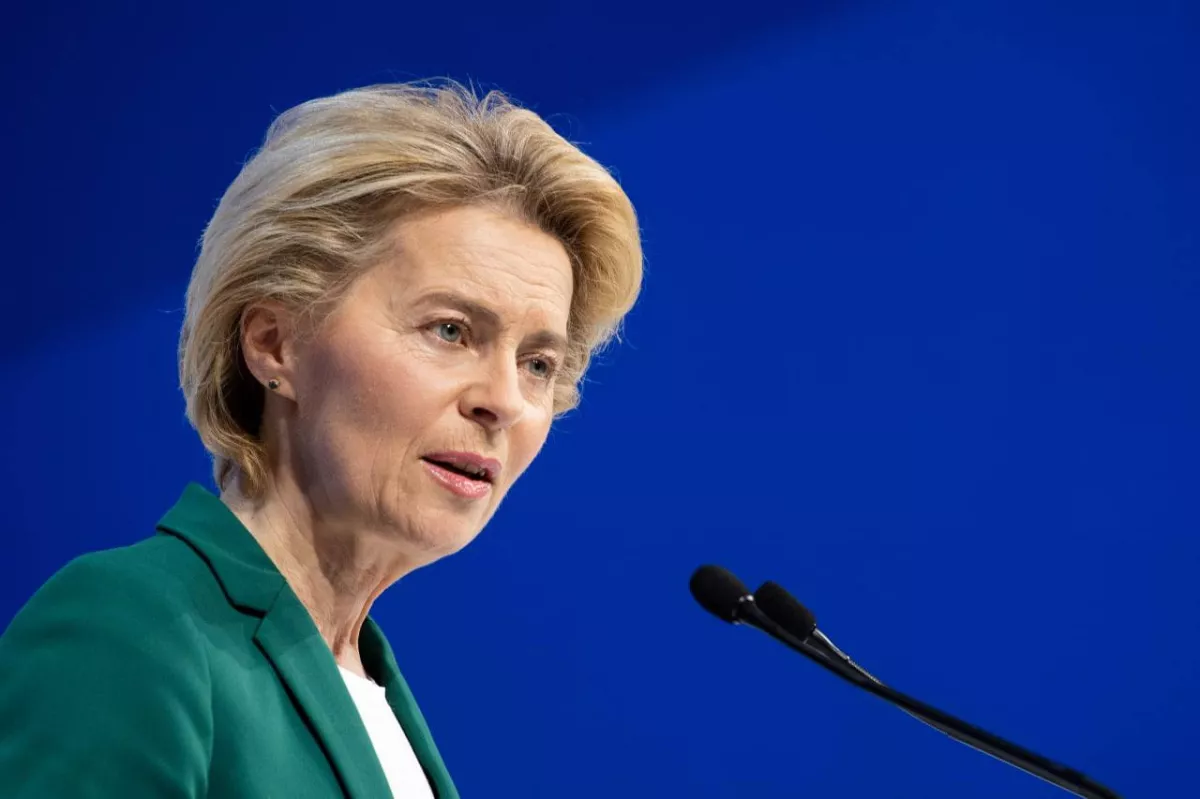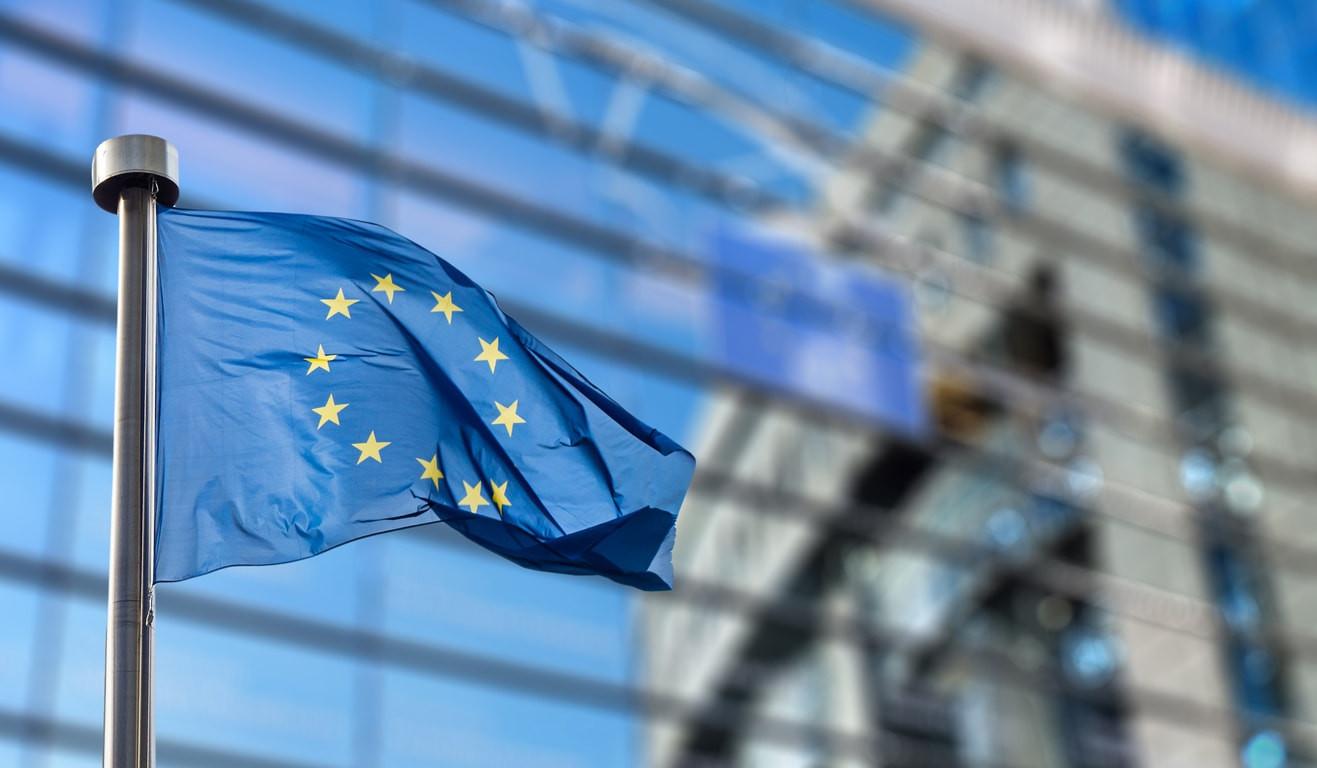EU: Gap between bureaucratic slogans and real outcomes From geopolitics to security
The President of the European Commission has started her new term with yet another lofty slogan. However, her previous five years in office reveal a significant gap between the bureaucratic rhetoric coming out of Brussels and the actual results delivered. This disconnect poses challenges not only for the EU itself but also for many of its neighboring countries.
European Commission President Ursula von der Leyen launched the new political season with a speech at the Globsec Forum in Prague, marking her first public appearance after being reappointed for a second term as the head of the EU’s executive branch.
Under von der Leyen's leadership, the European Commission and the entire Brussels political machine are now entering a new five-year cycle. In terms of staffing, this means that current commissioners and other high-ranking EU officials are now working in an "acting" capacity. Some, including von der Leyen herself, will remain in their roles, while many others will have to make way for new appointees following a lengthy nomination and approval process.
In terms of substance, even if the leader of a key institution remains unchanged, a transition period almost always requires a shift in priorities, if not a full program overhaul. Time marches on, and major events continue to unfold. This necessitates administrative adjustments to evolving conditions, along with a recalibration of the development goals for EU member states and their citizens. This is especially critical today, when the pace of events in a single year can feel equivalent to three or four years in peaceful times.
A new bureaucratic slogan
For this reason, many expected von der Leyen’s speech in Prague to lay out a clear program and reaffirm the priorities of her second five-year term, which she had spoken about extensively several months ago during her candidacy.
In broad terms, her address did touch on these themes. However, it lacked depth and coherence. Her speech is unlikely to be remembered as a rhetorical milestone or the launch of a new era for the EU. Much of what von der Leyen said has been repeated at numerous forums and events over the years. In fact, these ideas have been circulating for quite some time—several years at least. This raises a key question: if these priorities were so central during her first term, why was she unable to achieve them?
But perhaps this is what makes it significant. In her speech in Prague, delivered as the reappointed President of the European Commission, von der Leyen effectively reaffirmed her intention to stick to the same path. She underscored her commitment to continue and strengthen the efforts she and her team have pursued over the past few years. The lack of any major policy shift is as telling as if she had announced sweeping changes.
If one were to summarize von der Leyen’s 15-minute speech at the Globsec Forum, the central theme would be the EU as fundamentally a security project. In her own words: "We must refocus our attention on the security aspect of everything we do. We need to view our Union as fundamentally a security project."
It’s notable that in her speech, the word “security” was mentioned 10 times. Similar emphasis was placed on “war” (11 times) and “peace” (9 times). Essentially, the head of the European Commission promised to steer the EU toward comprehensive securitization. This reflects broader global trends we are currently witnessing. Security is a constant topic of discussion, and, regrettably, this is largely warranted given the current state of global security. However, it sometimes seems that many are eager to capitalize on the widespread concern about security. A recent episode title from a popular American podcast in the expert community captures this sentiment: “Is Everything Really a National Security Issue?”
Regardless, it’s evident that securitization is becoming an increasingly pervasive reality within the European Union. More and more aspects of life across various sectors are being politicized and viewed through the lens of security as a fundamental issue of national importance. This trend brings with it all the associated consequences.
At the Brussels bureaucracy level, this trend is accompanied by the proliferation of new slogans. “The EU as a security project” is just one example of this phenomenon.
What about the "Geopolitical Commission"?
This new slogan, which has already been picked up by journalists in the Brussels press corps, echoes a situation from five years ago. At her first official press conference as the chief EU official, Ursula von der Leyen declared that she would lead a "geopolitical Commission." For context, her predecessor, Jean-Claude Juncker, had promised to lead a "political Commission."
In 2019, Ursula von der Leyen’s announcement of her "geopolitical Commission" surprised and puzzled even many seasoned observers deeply familiar with European politics. For decades, during the EU's era of "the end of history," the term "geopolitics" was taboo in Brussels. High-ranking officials typically squashed any attempts to mention geopolitical factors in discussions, emphasizing that "the EU does not engage in geopolitics." Yet suddenly, there was a declaration not just of engaging in geopolitics, but of proclaiming the EU’s executive body as geopolitical.
The resonance of von der Leyen’s slogan at that time was such that the subsequent years of her first term were spent trying to decipher what exactly she meant. Thousands of articles were written, research projects were undertaken, and numerous forums were held—all aimed at giving conceptual and practical substance to the European Commission President's bold claim. Many academic teams and semi-scientific entrepreneurs were genuinely grateful to the head of the Berlaymont building for providing a prime opportunity to apply for significant research grants. To add a touch of irony, the "geopolitical Commission" slogan inadvertently became a sort of large-scale infrastructure project, creating numerous jobs in the best Keynesian tradition.

Although von der Leyen clearly and succinctly articulated the European Commission's goal under her leadership—to enhance the EU's role on the global stage—the practical implementation and, most importantly, the results have been less clear. The goal was well-defined and reasonable, with a catchy and impactful slogan, making it politically savvy. But has the EU's role on the global stage actually increased five years into von der Leyen’s tenure? The answer is something everyone can easily determine for themselves. The facts are so apparent that there’s little point in dwelling on them. It’s enough to recall that in some parts of Europe, there are well-founded concerns and warnings about the potential decline of the entire EU project.
From slogan to slogan: Bureaucracy’s cheerful existence
It is clear that the truly existential challenges facing the European Union are complex and systemic. It would be an oversimplification to attribute all of these issues solely to the legacy of the outgoing European Commission or the leadership of Ursula von der Leyen (although, politically, current leaders are inevitably held accountable). Therefore, it is prudent not to draw direct and unmediated causal connections between the Commission President’s slogans and the actual results achieved by the EU on the international stage.
Moreover, issues of foreign policy and security are not the exclusive domain of the European Commission and its president. In fact, according to the foundational Treaty on the Functioning of the European Union, Brussels plays a secondary role in these matters. The primary responsibility lies with national governments, and decisions in these areas are made by their political leaders, not by Brussels officials. Many within the EU find this situation unsatisfactory, but foreign policy and security remain an intergovernmental aspect of cooperation, rather than the competence of supranational institutions.

Nevertheless, the situation with the latest slogan—this time about the "EU as a security project"—brings to light a long-standing issue. Simply put, the problem is that the EU bureaucracy in Brussels seems to operate in its own insular world, disconnected not only from the real dynamics of international relations but also from the pressing issues facing EU member states and their citizens. Instead of addressing these issues, the focus appears to be on endless slogans and "buzzwords."
Taking the case of the "geopolitical Commission," it has often seemed over the past five years that many EU officials confused means with ends. What should have been tools or instruments for achieving political goals were instead proclaimed as the goals themselves and elevated to bureaucratic absolutes: budgets were adjusted accordingly, and success reports were structured around these new imperatives. For example, as Professor Sven Biscop notes, the term "geopolitics" was often confused with strategy. Consequently, it is not surprising that the criteria for geopolitical effectiveness became, in reality, counterproductive to the long-term interests of the EU—such as grandiose and bellicose statements in all directions (except North America) and indiscriminate imposition of sanctions.
This is a serious problem, not only for the European Union itself but also for many neighboring countries that have traditionally seen numerous benefits and even a promising future in the European integration project.
We might boldly predict that this will be the last political cycle—and the last European Commission—in which the EU remains in its current form. In five years, the EU will either be in the midst of a deep institutional crisis, or it will begin a serious discussion about systemic reforms, or we may witness both simultaneously. The systemic issues and contradictions that have accumulated over the past 15 years across various spheres seem to be approaching a critical juncture. Even in relatively stable times, it would be extremely challenging for the EU to stay afloat without substantial reforms.
Now, as the entire system of international relations collapses and geopolitical and military-political competition intensifies, the EU is starting to appear increasingly unmanageable, less competitive, and even counterproductive in some aspects. Loud slogans alone will not pull the European Union out of this quagmire of problems.








